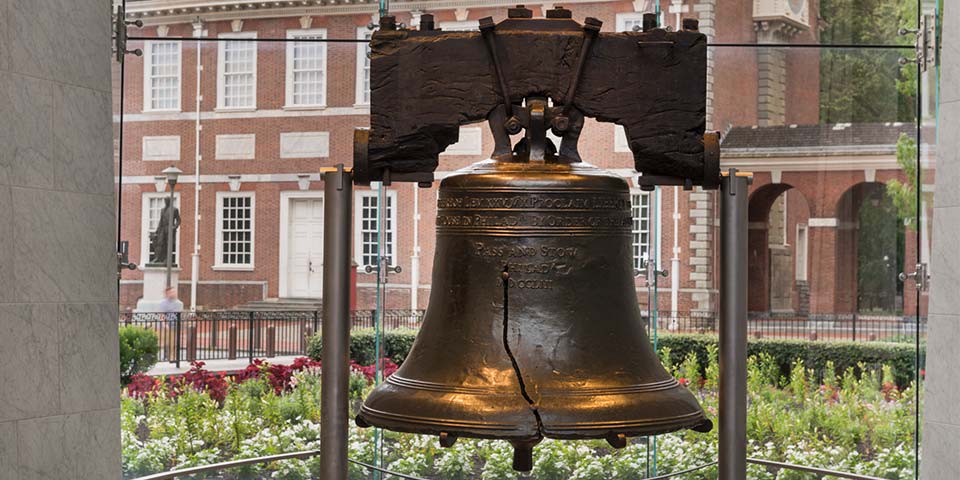Pennsylvania Lease Agreements: A 2024 Guide:
A lease agreement is a legal contract between a landlord and a tenant that outlines the terms and conditions of renting a property. It includes details such as the rent amount, lease term, and responsibilities of both parties. A lease agreement is an important document that protects the rights of both the landlord and the tenant and ensures a smooth rental experience.
In Pennsylvania, a lease agreement is a legally binding contract between a landlord and a tenant for the rental of a property located in the state. It is governed by the Pennsylvania Landlord and Tenant Act, which outlines the rights and responsibilities of both parties. A well-written lease agreement is crucial for a successful rental experience in Pennsylvania.
A Pennsylvania lease agreement should include key components such as:
- The names and contact information of the landlord and tenant.
- A description of the property.
- The lease term and renewal options.
- Rent amount and due date.
- Security deposit details.
- Termination and eviction procedures.
Depending on the type of lease agreement, additional clauses may be necessary.
There are different types of lease agreements in Pennsylvania, including residential, commercial, and month-to-month leases. Each has its own set of rules and regulations, and it is important to choose the right type of lease agreement depending on the type of property and the length of the rental term.
To create a Pennsylvania lease agreement, you can use a template or consult a lawyer. It is important to include all necessary information and details in the agreement to ensure a clear understanding between both parties.
There are legal requirements that must be met when creating a Pennsylvania lease agreement. These include age and capacity requirements, fair housing laws, disclosure of lead paint hazards, security deposit limits and procedures, and the landlord’s duty to maintain the property. It is important to understand these requirements to avoid any legal issues.
You can find Pennsylvania lease agreement templates online or through legal offices. It is important to choose a template that is specific to Pennsylvania to ensure it complies with state laws and regulations.
Some common mistakes to avoid in a Pennsylvania lease agreement include:
- Not including all necessary information.
- Not understanding legal requirements.
- Not consulting a lawyer.
- Not clearly defining responsibilities and expectations.
These mistakes can lead to complications and disputes between the landlord and tenant. It is crucial to carefully review and understand the lease agreement before signing.
What Is a Lease Agreement?
A lease agreement is a legally binding contract between a landlord and a tenant, outlining the terms and conditions for renting a property. It specifies details such as rent amount, lease duration, and obligations of both parties. Understanding the lease agreement is crucial to avoid any misunderstandings or disputes during the tenancy.
Throughout history, lease agreements have been used for centuries, dating back to ancient civilizations such as the Babylonians and Greeks.
Why Is a Lease Agreement Important?
A lease agreement is crucial for outlining the terms and conditions of a rental arrangement. It serves to establish a clear understanding between the landlord and tenant regarding rent, occupancy period, and maintenance responsibilities. Additionally, it provides legal protection and outlines the rights and obligations of both parties. Without a lease agreement, disputes may arise, potentially leading to legal issues and financial loss. Therefore, having a comprehensive lease agreement is essential for maintaining a harmonious relationship between landlord and tenant.
What Is a Pennsylvania Lease Agreement?
A Pennsylvania lease agreement is a legally binding contract that outlines the terms and conditions of renting a property in Pennsylvania. It is crucial for both landlords and tenants to understand what a Pennsylvania lease agreement entails, as it specifies important details such as:
- rent amount
- lease duration
- responsibilities of both parties
- any restrictions or rules associated with the rental property
This ensures a clear and fair rental arrangement for all involved.
What Are the Key Components of a Pennsylvania Lease Agreement?
Key components of a Pennsylvania lease agreement include:
- The names and contact information of the parties involved.
- A description of the property.
- The lease term and options for renewal.
- The amount and due date of rent.
- The security deposit.
- Responsibilities for utilities and maintenance.
- The pet policy.
- Procedures for termination and eviction.
- Legal requirements.
For example, there was a true story where a tenant found hidden mold in their apartment. Thanks to a thorough lease agreement, the landlord was held legally accountable for removing the mold and maintaining the property, ultimately ensuring a safe living environment.
What Are the Different Types of Pennsylvania Lease Agreements?
When it comes to leasing property in Pennsylvania, there are various types of lease agreements to consider. Each type has its own unique terms and conditions, making it important for tenants and landlords to understand the differences. In this section, we will discuss the three main types of lease agreements in Pennsylvania: residential, commercial, and month-to-month leases. By the end, you will have a better understanding of which type of lease best suits your specific needs and situation.
1. Residential Lease Agreements
- Understand State Laws: Research Pennsylvania’s residential lease laws to ensure compliance with Residential Lease Agreements.
- Draft Agreement: Include names, property details, lease terms, rent, and security deposit specifics.
- Define Responsibilities: Clearly outline tenant and landlord obligations regarding utilities, maintenance, and pet policies.
- Consult Legal Counsel: Seek legal advice or utilize a template to guarantee all legal requirements are met.
In 1682, Pennsylvania was founded by William Penn, making it one of the original 13 colonies.
2. Commercial Lease Agreements
- Understand the specific needs: Identify the precise requirements of the business for the leased space, as outlined in commercial lease agreements.
- Research available properties: Explore various commercial properties to find the most suitable location and type of space, in accordance with the terms of commercial lease agreements.
- Negotiate lease terms: Discuss and finalize crucial aspects such as lease duration, rent amount, renewal options, and any additional costs with the landlord, as specified in commercial lease agreements.
- Review legal obligations: Ensure compliance with legal regulations regarding the lease agreement and seek legal advice if necessary, as stated in commercial lease agreements.
3. Month-to-Month Lease Agreements
- Review Existing Lease: Check if the current lease allows for a month-to-month arrangement.
- Agree on Terms: Discuss with the landlord to determine the rent amount, notice period, and conditions for terminating the lease.
- Document Agreement: Draft a written addendum or new lease agreement outlining the terms and obligations for a month-to-month lease.
What Should Be Included in a Pennsylvania Lease Agreement?
When entering into a lease agreement in Pennsylvania, it is important to ensure that all necessary information is included. In this section, we will discuss the key components that should be incorporated into a Pennsylvania lease agreement. These include the names and contact information of both the landlord and tenant, a detailed description of the property, the lease term and renewal options, the rent amount and due date, the security deposit, responsibilities for utilities and maintenance, the pet policy, and procedures for termination and eviction. Let’s dive into each of these elements to better understand their significance in a lease agreement.
1. Names and Contact Information of Landlord and Tenant
- Gather the complete legal names and current contact details of both the landlord and the tenant.
2. Property Description
- Start with the address of the property, including the unit or suite number, if applicable.
- Include a detailed description of the property, specifying the number of bedrooms, bathrooms, and any additional features such as a garage, garden, or patio.
- Clearly outline any furnishings or appliances that are included in the lease agreement.
- Provide precise square footage measurements for each area of the property.
When describing the property, it is important to be accurate and transparent for both landlords and tenants to avoid any misunderstandings or disputes.
3. Lease Term and Renewal Options
- Determine Initial Lease Term: Decide the length of the initial lease term, typically 6 months or 1 year.
- Include Renewal Options: Outline renewal options, such as the duration of renewal periods and notice requirements for the 3. Lease Term and Renewal Options.
- Specify Rent Changes: Define any rent adjustments for lease renewals in line with market conditions.
4. Rent Amount and Due Date
When determining the rent amount and due date in a lease agreement, follow these steps:
- Research the Market: Understand the average rent for similar properties in the area.
- Evaluate Property Costs: Factor in maintenance, utilities, and property taxes when deciding on the rent amount.
- Consider Tenant’s Financial Capability: Set a reasonable due date aligned with the tenant’s payday for convenience.
Pro-tip: Offering a grace period for late rent payments can help foster a positive landlord-tenant relationship.
5. Utilities and Maintenance Responsibilities
- It is important to understand the lease terms regarding utility payments and maintenance responsibilities.
- Be sure to clarify which utilities the tenant is responsible for, such as electricity, water, or gas.
- Determine the landlord’s responsibilities for property maintenance, including repairs and upkeep.
- It is crucial to document all agreed-upon responsibilities in the lease agreement to avoid disputes.
Once, a tenant assumed they were responsible for all utility bills, leading to unexpected high costs. However, upon reviewing the lease agreement, they discovered that the landlord was responsible for covering water expenses, which saved them significant money and stress.
6. Pet Policy
- Check Lease Agreement: Review the lease agreement to ensure the pet policy is clearly stated and understood.
- Understand Restrictions: Make sure to understand any restrictions related to pet size, breed, or number.
- Additional Fees: Determine if there are any additional fees or deposits for having a pet on the premises.
In 2020, Pennsylvania passed a law allowing tenants to have pets in rental properties unless the lease explicitly prohibits it.
7. Termination and Eviction Procedures
- Review the lease agreement to fully understand the stipulated procedures for terminating the agreement and evicting a tenant.
- Notify the tenant in writing, clearly stating the reasons for the eviction or termination.
- Provide the required notice period as outlined by Pennsylvania law.
- If the issue remains unresolved, file a complaint with the court and await a scheduled hearing date.
- Attend the court hearing and present evidence to support the eviction or termination.
- If the ruling is in favor of the landlord, follow all legal procedures to evict the tenant.
How to Create a Pennsylvania Lease Agreement?
A Pennsylvania lease agreement is a legally binding document that outlines the terms and conditions of a rental agreement between a landlord and a tenant. While it may seem daunting to create such an important document, there are a few key steps you can follow to ensure a thorough and comprehensive lease agreement. In this section, we will discuss the best practices for creating a Pennsylvania lease agreement, including utilizing a template, seeking legal advice, and including all necessary information to protect both parties involved.
1. Use a Template
- Research: Utilize reputable sources to find lease agreement templates, such as legal websites or state-specific resources.
- Customize: Personalize the template to fit your specific requirements, making sure to include all necessary clauses and details.
- Review: Thoroughly inspect the final document, and seek legal counsel if needed, to ensure compliance with Pennsylvania laws.
2. Consult a Lawyer
- Research: Identify reputed lawyers specializing in lease agreements. Check their experience and reviews.
- Consultation: Schedule a meeting with the selected lawyer to discuss your lease agreement requirements and concerns.
- Documentation: Prepare all necessary documents and details related to your lease agreement for the consultation.
- Clarify Doubts: During the consultation, seek clarifications on legal terms, clauses, and obligations.
- Legal Review: Request the lawyer to review the lease agreement to ensure legal compliance and protection of your interests.
3. Include All Necessary Information
- Gather all relevant details about the property and parties involved.
- Include the necessary information such as the lease term, renewal options, and rent amount with the due date.
- Clearly outline the security deposit, utilities, and maintenance responsibilities.
- Incorporate any specific pet policy, termination procedures, and eviction protocols.
- Make sure to include all necessary information, including legal requirements such as fair housing laws and lead paint hazard disclosures.
What Are the Legal Requirements for a Pennsylvania Lease Agreement?
As a landlord or tenant in Pennsylvania, it is important to understand the legal requirements for a lease agreement. In this section, we will discuss the key factors that must be considered when creating a lease in Pennsylvania. These include age and capacity requirements, fair housing laws, disclosure of lead paint hazards, security deposit limits and procedures, and the landlord’s duty to maintain the property. By understanding these legal requirements, both landlords and tenants can ensure a fair and lawful lease agreement.
1. Age and Capacity Requirements
- Verify that the tenant is of legal age and has the mental capacity to enter into the lease agreement.
- Ensure that the tenant meets the state’s requirements for legal capacity.
- Review the lease agreement to confirm that it complies with capacity laws.
Did you know? According to Pennsylvania law, landlords are responsible for ensuring that their tenants meet the age and capacity requirements for entering into a lease agreement.
2. Fair Housing Laws
Fair Housing Laws, as stated in Pennsylvania Lease Agreements, prohibit discrimination based on race, color, national origin, religion, sex, familial status, or disability. Landlords must adhere to these laws and provide equal treatment to all tenants throughout the rental process, including advertising, application, and tenant selection. It is also important to note that accommodations must be made for individuals with disabilities.
When navigating Pennsylvania Lease Agreements, it is crucial to understand the complexities of Fair Housing Laws in order to maintain fair and legal relationships between tenants and landlords.
3. Disclosure of Lead Paint Hazards
- Verify Age of Property: Check if the property was constructed before 1978, as federal law mandates disclosure of lead paint hazards if known or presumed.
- Provide EPA Pamphlet: Give the tenant an Environmental Protection Agency (EPA) pamphlet about lead paint hazards, outlining the risks and safety measures.
- Include Warning in Lease: Clearly state in the lease that the landlord has complied with all notification requirements regarding the disclosure of lead paint hazards.
4. Security Deposit Limits and Procedures
- Calculate Limit: Determine the maximum amount allowed for a security deposit based on Pennsylvania state laws.
- Documentation: Record the condition of the property in a move-in checklist and take photographs for evidence.
- Deposit Handling: Safely store the security deposit in a separate account and provide the tenant with a receipt.
- Return Process: Establish procedures for returning the deposit, including any deductions, within the legally specified timeframe.
The concept of security deposits dates back to ancient Rome, where tenants paid a form of deposit to secure an agreement, similar to today’s practices. This concept is still relevant today, as seen in the 4. Security Deposit Limits and Procedures set in place by Pennsylvania state laws. These procedures include calculating the maximum amount allowed for a security deposit, properly documenting the condition of the property, handling the deposit with care, and establishing procedures for returning the deposit within the legally specified timeframe.
5. Landlord’s Duty to Maintain the Property
- Regular Maintenance: It is the landlord’s responsibility to ensure regular upkeep of the property, including repairs, structural maintenance, and landscaping.
- Prompt Repairs: Any issues reported by tenants must be addressed promptly to ensure a habitable living environment.
- Legal Compliance: Landlords must adhere to all legal requirements regarding property safety, habitability, and maintenance.
Landlords have a duty to maintain the property and provide a safe and habitable living environment for tenants, which is essential for fostering a positive landlord-tenant relationship.
Where Can You Find a Pennsylvania Lease Agreement Template?
To find a Pennsylvania lease agreement template, you can visit municipal government websites, legal aid organizations, or reputable online legal document providers. Some options include the Pennsylvania Department of Community and Economic Development website or local legal aid societies, which may offer free templates. Alternatively, online legal platforms like Rocket Lawyer or LegalZoom offer customizable lease agreement templates for a fee. Be sure to carefully review any template to ensure it meets Pennsylvania’s legal requirements.
What Are
Pennsylvania Lease Agreements: A 2024 Guide offers valuable insights into what are the essential elements in a standard lease agreement. Understanding what are the key terms, such as rent amount, security deposit, and lease duration, is crucial for both landlords and tenants. Did you know that Pennsylvania law requires landlords to return a tenant’s security deposit, minus any deductions, within 30 days of lease termination?
Frequently Asked Questions
What is the purpose of a lease agreement?
A lease agreement is a contract between a landlord and a tenant that outlines the conditions and terms for the tenant to occupy the landlord’s property. It serves to protect both parties in case of any issues.
What should be done before a lease agreement is signed and the tenant moves in?
Before signing a lease agreement and moving in, it is important to ensure that the property is ready to be rented out and a reliable renter has been found after proper screening. The tenant should also be required to put down a deposit and first month’s rent.
What are the lease agreement laws in Pennsylvania?
In Pennsylvania, leases for terms longer than 3 years must be written, while shorter terms can be made through an oral agreement. It is highly recommended to use a written lease agreement for documentation and clarity.
How is a lease agreement different from a rental agreement?
While both serve as contracts between a landlord and tenant, lease agreements are typically longer and for a period of at least 6 months to a year, while rental agreements are usually shorter and offer more flexibility.
Can I use an online lease template for a property in Pennsylvania?
It is not recommended to use online lease templates as they may not be in line with Pennsylvania’s rental rules. It is best to either write your own lease agreement or hire a property management company for lease preparation.
What information should be included in a lease agreement?
A lease agreement should include details such as rent amount, due date, and responsibility for utilities. The more specific and detailed the agreement is, the better it can serve both the landlord and tenant. Hiring a property management company can help ensure all necessary information is included.
Dave is a seasoned real estate investor with over 12 years of experience in the industry. Specializing in single-family residential real estate, David’s strategic approach combines market analysis, financial acumen, and a deep understanding of urban development trends to maximize investment returns.










